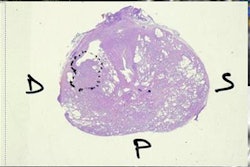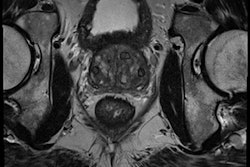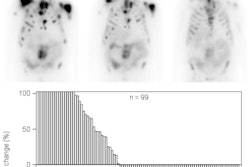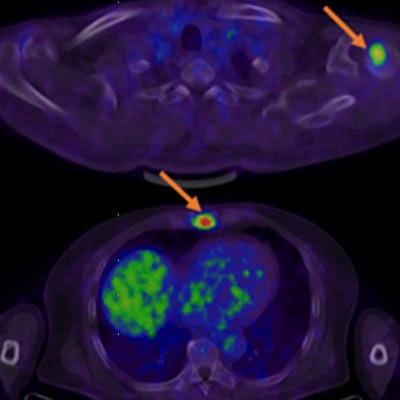
Researchers have developed a new PET radiotracer designed to detect both early and advanced prostate cancer and help direct treatment, according to a study in the February issue of the Journal of Nuclear Medicine.
The paper outlines the first-in-human application of a peptide BBN-RGD agent labeled with gallium-68 (Ga-68) that targets gastrin-releasing peptide receptor (GRPR) and integrin αvβ3. Results suggest that Ga-68 BBN-RGD is both safe and effective (JNM, February 2017, Vol. 58:2, pp. 228-234).
While prostate cancer is treatable in its early stages, the disease is prone to metastasis, according to researchers led by senior investigator Xiaoyuan Chen, PhD, from the Laboratory of Molecular Imaging and Nanomedicine at the U.S. National Institute of Biomedical Imaging and Bioengineering. Therefore, an effective and specific imaging method of detecting both primary and metastatic lesions is critical.
The study included four patients who were newly diagnosed with prostate cancer, nine patients who had received therapy, and five healthy volunteers. Ga-68 BBN-RGD PET/CT detected 20 bone lesions in seven patients either with primary prostate cancer or after radical prostatectomy.
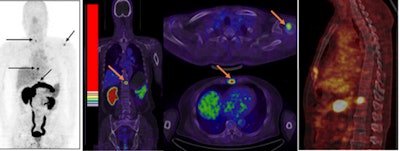 Ga-68 BBN-RGD PET/CT of a 64-year-old man with newly diagnosed prostate cancer shows multiple bone metastases (arrow). Image courtesy of JNM and Jingjing Zhang, Peking Union Medical College in Beijing.
Ga-68 BBN-RGD PET/CT of a 64-year-old man with newly diagnosed prostate cancer shows multiple bone metastases (arrow). Image courtesy of JNM and Jingjing Zhang, Peking Union Medical College in Beijing.The results are better than scanning with a methylene diphosphonate (MDP) radiopharmaceutical, and no adverse side effects were found during the procedure and a two-week follow-up.
"Ga-68 BBN-RGD could play an additive role in staging and detecting prostate cancer and provide guidance for internal radiation therapy using the same peptide labeled with therapeutic radionuclides," Chen said in a statement. Larger clinical trials are needed to investigate the results, he added.




